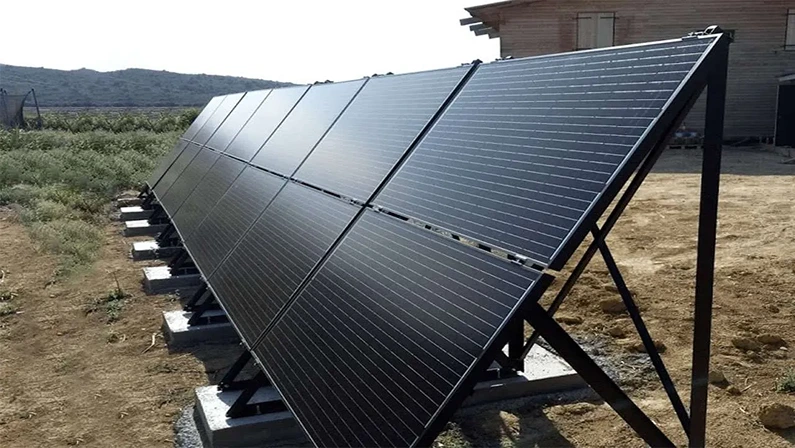Living off grid means independence, no more reliance on the power company and no more unexpected energy bills.
But what happens when your solar panels produce more power than you need? Instead of wasting that energy, there are practical ways to put it to good use. Let’s explore how off-grid solar manages excess energy to keep your system efficient and reliable.
How Off-Grid Solar Manages Excess Energy
Unlike grid-tied systems that send extra power back to the energy provider, off-grid solar setups must handle surplus energy independently. Here’s how:
Battery Storage
Store extra power in high-capacity batteries for use when sunlight is low. This ensures that you can tap into your energy storage during cloudy periods or nighttime, making the most of your solar setup.
For example, a family living off-grid in rural Australia can rely on a large battery bank to store energy during sunny days, ensuring they have enough power during the long winter nights.
Charge Controllers and Inverters
These regulate power flow, prevent overcharging, and ensure the system runs efficiently.
They’re essential for maintaining a smooth and uninterrupted power supply for off-grid systems.
Diversion Loads
Excess energy can be redirected to useful applications, such as heating water, powering appliances, or even charging an electric vehicle.
This is a smart way to keep everything running efficiently without letting power go to waste.
For instance, a farmer with an off-grid system might use surplus solar power to run irrigation systems, saving on fuel costs and minimising the need for backup generators.
Dump Loads
If there’s nowhere else for the power to go, dump loads safely convert surplus energy into heat to prevent system overloads.
It ensures that the system remains safe even when there’s too much power generated.
Maximising Off-Grid Solar Efficiency
To get the most from your off-grid solar setup, consider these strategies:
Invest in High-Capacity Batteries
More storage means more power available when you need it. Storing energy ensures that you’re covered during low sunlight days or cloudy periods.
With high-quality batteries, you can also make the most of off-peak energy storage, ensuring a reliable power supply year-round.
Monitor Energy Consumption
Keep an eye on how much energy you’re using. This helps avoid wastage and lets you adjust your power needs based on real-time data.
Many off-grid homeowners use smart meters or energy management systems to track consumption and optimise usage.
Use Smart Appliances
Time your energy-hungry devices to operate when solar production is at its peak. This maximises efficiency and ensures that you’re drawing energy from your solar system when it’s abundant.
For instance, scheduling your water heater to work during midday sun ensures you’re using the solar power at its fullest.
Have a Backup Generator
For those extended cloudy periods or times when solar energy may be low, a backup generator is a reliable option that ensures you never run out of power.
However, it’s important to choose one that complements your system, running only when necessary to save on fuel costs and reduce emissions.
Challenges with Off-Grid Solar Systems
While off-grid solar systems offer independence and sustainability, there are challenges to keep in mind:
Initial Costs
The upfront investment for high-capacity batteries, solar panels, and backup generators can be significant.
However, these costs are often offset in the long run with reduced energy bills and the elimination of reliance on the grid.
Maintenance
Regular maintenance is necessary to ensure your off-grid solar system functions properly.
Batteries, in particular, require monitoring and maintenance to extend their lifespan.
Weather Dependence
Solar energy production can be less efficient on cloudy or rainy days, meaning storage capacity and a good backup system are essential.
In some areas, long periods without sunlight could affect the system’s reliability.
Emerging Trends in Off-Grid Solar
The off-grid solar sector is evolving rapidly, and new technologies continue to enhance efficiency and affordability:
Advanced Battery Storage
New battery technologies, such as lithium-ion and solid-state batteries, are becoming more efficient and cost-effective, making it easier to store excess energy for long-term use.
Smart Solar Systems
Innovations in smart grids and solar power management systems allow for more precise control over energy generation, storage, and consumption. These systems can optimise energy use in real-time, making it easier for off-grid homeowners to manage their energy needs.
Hybrid Systems
Combining solar with other renewable sources, like wind or micro-hydro power, can create a more reliable off-grid energy system. These hybrid systems are gaining traction as they can ensure power availability even when the sun isn’t shining.
Making the Most of Off-Grid Solar Power
Going off grid doesn’t mean wasting energy. Storing surplus power, using it efficiently, and managing it wisely keeps your system running smoothly year-round. With the right setup, you’ll always have reliable power and make the most of the energy your solar panels generate.
Managing Your Energy Efficiently
By managing energy properly and investing in high-quality storage solutions, you ensure that your solar system is working at its peak efficiency. Insights from the Australian Government’s Energy Department highlight ways to maximise solar power, ensuring it’s both effective and sustainable. Additionally, using efficient methods to store and redirect energy, as discussed by the Australian Renewable Energy Agency, can help in utilising excess energy in innovative ways, like heating water.
Financial Benefits of Off-Grid Solar
Finally, understanding the financial benefits of solar power and energy storage, as outlined by Energy.gov.au, can help make your off-grid lifestyle not only environmentally friendly but also economically viable.


